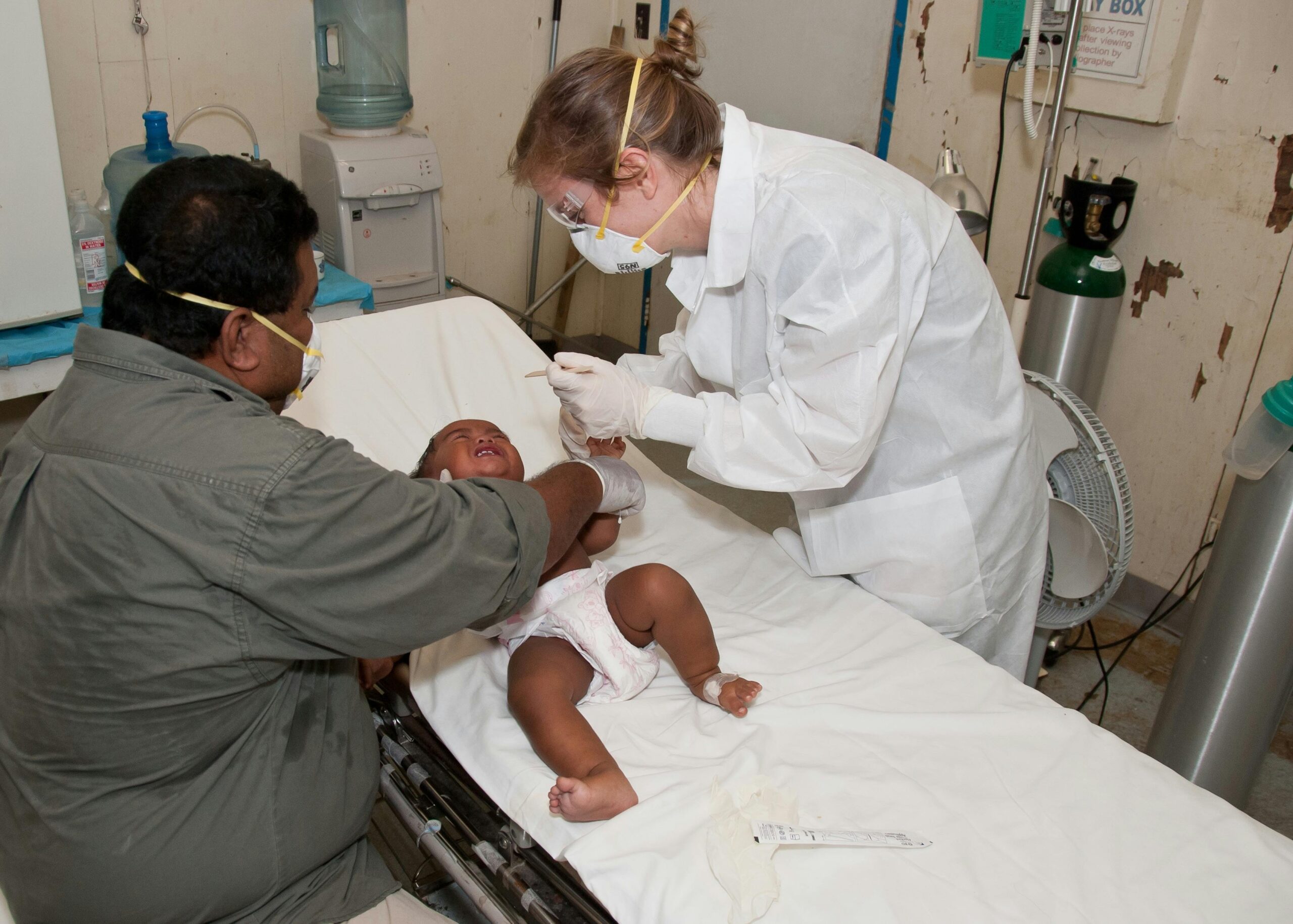Neonatology involves caring for and treating newborn babies, sick babies or premature babies, from the time that they are born to when they are stable and ready to transition home. Neonatologists leverage their extensive medical knowledge and years of experience to improve quality of life and achieve optimal outcomes for babies born premature, or with infections or diseases. As a neonatologist, you will be providing specialized care to your tiny patients, during their initial days, weeks, and months of life, in either a regular hospital setting or in a Neonatal Intensive Care Unit (NICU). If you are wondering whether a career in neonatology is your cup of tea, we delve in to the nitty gritty details about what a career in neonatology entails, to help you make an informed decision.
Who is a Neonatologist?
A neonatologist is a specialized pediatrician who focuses on the medical care of newborn infants, particularly those with life-threatening illnesses or those born before 37 weeks of pregnancy. These doctors play a crucial role in the neonatal intensive care unit (NICU), where they provide comprehensive care to newborns facing a variety of health challenges such as infections, heart defects, congenital abnormalities, genetic diseases, breathing issues,
With advanced training beyond general pediatrics, neonatologists are equipped to handle the unique needs of newborns, working closely with a team of healthcare professionals to ensure the best possible outcomes. Their expertise not only involves immediate medical interventions but also includes long-term follow-up to monitor and support the baby’s development. Beyond their technical skills, neonatologists often provide invaluable emotional support and guidance to families during what can be an incredibly stressful and emotional time, helping parents navigate the complexities of neonatal care with compassion and understanding.
What medical conditions do Neonatologists treat?
Neonatologists treat a wide range of medical conditions that affect newborn infants, especially those who are premature or critically ill. Some of the key conditions they manage include:
- Prematurity: Babies born before 37 weeks of gestation often require specialized care due to underdeveloped organs.
- Respiratory Distress Syndrome (RDS): Common in preterm infants, this condition occurs when the lungs are not fully developed and lack surfactant, making it difficult for the baby to breathe.
- Bronchopulmonary Dysplasia (BPD): A chronic lung condition that can develop in premature infants who have needed long-term respiratory support.
- Infections: Neonatologists treat various infections that newborns may contract before, during, or after birth, such as sepsis, meningitis, and pneumonia.
- Jaundice: This condition, characterized by yellowing of the skin and eyes, is caused by high levels of bilirubin in the blood.
- Congenital Malformations: Structural abnormalities present at birth, such as heart defects, cleft palate, or spina bifida.
- Neonatal Abstinence Syndrome (NAS): Occurs when a baby withdraws from certain drugs he/she was exposed to in the womb.
- Hypoxic-Ischemic Encephalopathy (HIE): Brain dysfunction caused by a lack of oxygen or blood flow to the brain during birth.
- Intrauterine Growth Restriction (IUGR): A condition where a baby grows slower than expected in the womb, leading to low birth weight.
- Persistent Pulmonary Hypertension of the Newborn (PPHN): A condition where a newborn’s circulation system doesn’t adapt to breathing outside the womb, causing high blood pressure in the lungs.
- Necrotizing Enterocolitis (NEC): A serious gastrointestinal problem that mostly affects premature infants, causing inflammation and bacterial invasion of the intestine.
- Genetic and Metabolic Disorders: Conditions like phenylketonuria (PKU), cystic fibrosis, or chromosomal abnormalities that are diagnosed shortly after birth.
How to become a Neonatologist?
Becoming a neonatologist requires extensive education and training. Here is a detailed overview of the education requirements and steps involved:
- Obtain an Undergraduate Degree: The journey begins with earning a bachelor’s degree, typically with a strong emphasis on pre-medical courses such as biology, chemistry, physics, and mathematics. This usually takes four years.
- Complete Medical School: After completing an undergraduate degree, aspiring neonatologists must attend an accredited Caribbean medical school to earn a Doctor of Medicine (MD) or Doctor of Osteopathic Medicine (DO) degree. Medical school generally takes four years and includes both classroom instruction and clinical rotations.
- Complete Pediatric Residency: Following medical school, the next step is to complete a pediatric residency program, which typically lasts three years. During this time, physicians gain hands-on experience in various areas of pediatrics, including general pediatrics, newborn care, and pediatric emergencies.
- Finish Neonatology Fellowship: After completing a pediatric residency, the physician must then undertake a neonatology fellowship, which usually lasts three years. This specialized training focuses exclusively on the care of critically ill newborns and includes both clinical practice in neonatal intensive care units (NICUs) and research in neonatal medicine.
- Apply for Board Certification: After completing a fellowship, physicians must obtain board certification in neonatology. This involves passing a rigorous examination administered by the American Board of Pediatrics (ABP) or a similar certifying body. Board certification demonstrates a high level of expertise and commitment to the field.
- Get State Licensure: Physicians must also be licensed to practice medicine in their respective states. Licensing requirements vary by state but generally include passing the United States Medical Licensing Examination (USMLE) or the Comprehensive Osteopathic Medical Licensing Examination (COMLEX-USA).
How much do Neonatologists make?
The salary of a neonatologist can vary significantly based on factors such as location, level of experience, and the type of healthcare facility they work in. However, according to recent data, the average annual salary for a neonatologist in the United States ranges from $220,000 to $320,000. Some sources even report averages closer to $300,000 to $350,000. Entry-level neonatologists can expect to earn on the lower end of the spectrum, around $200,000 to $250,000 per year. With increased experience and years in practice, salaries can rise significantly, often exceeding $350,000 annually.
Is a Career in Neonatology Worth it? Weighting the Pros and Cons
When considering if a career in neonatology is suited for you, keep the following aspects in mind:
Pros
- Rewarding Work: Neonatologists play a crucial role in saving the lives of newborns and improving their long-term health outcomes. The emotional reward of helping critically ill infants and their families can be immense.
- High Demand: There is a consistent demand for neonatologists due to the specialized nature of the field and the critical care required for premature and ill newborns. This can provide job security and opportunities in various healthcare settings.
- Competitive Salary: Neonatologists are well-compensated for their specialized skills and training, with salaries that are higher than many other medical specialties.
- Advancements in Medicine: The field of neonatology is constantly evolving with advancements in medical technology and research, offering opportunities for continuous learning and professional growth.
- Impactful Work: Neonatologists have a significant impact on the long-term health and development of their patients, providing a sense of purpose and fulfillment.
Cons
- Lengthy and Intensive Training: The path to becoming a neonatologist is long and demanding, requiring many years of education and training, including medical school, residency, and fellowship.
- High-Stress Environment: Working in a neonatal intensive care unit (NICU) can be highly stressful, as neonatologists often deal with life-and-death situations and must make critical decisions under pressure.
- Emotional Strain: Caring for critically ill newborns and supporting their families through difficult times can be emotionally taxing. The loss of patients can be particularly challenging to cope with.
- Long and Irregular Hours: Neonatologists often work long, irregular hours, including nights, weekends, and holidays. This can impact work-life balance and lead to burnout.
- High Responsibility: The high level of responsibility associated with caring for vulnerable infants means that neonatologists must stay vigilant and continuously update their knowledge and skills.
- Physical Demands: The job can be physically demanding, involving long hours standing, performing procedures, and managing emergencies.
Ready to get started in medicine?
Now that you know more about the education and training needed to become a neonatologist, you may want to get started on your career in medicine by applying to an accredited medical school like the Windsor University School of Medicine. Apply here or contact our admissions staff for further help!







